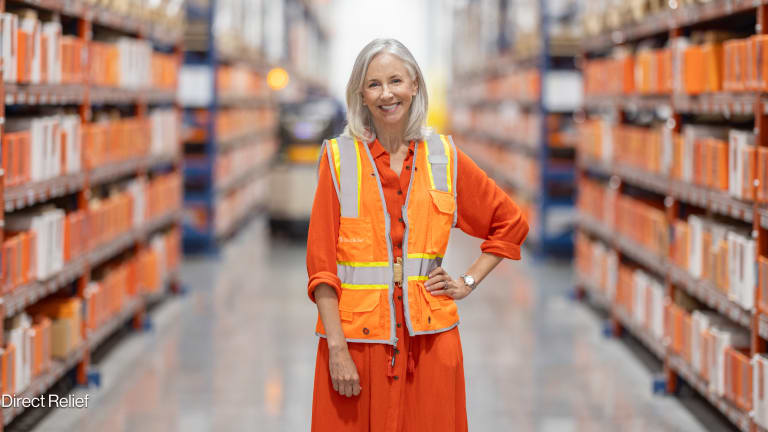The COVID-19 pandemic has accelerated the pace and scale of partnerships between the technology industry and the global development community. When done right, these partnerships can help organizations working on a range of causes — such as financial inclusion, education, or global health — scale their reach and impact. But tech industry partnerships require a different way of doing business, from pitching to communicating to measuring results. At a Devex digital event Wednesday, Senior Reporter Catherine Cheney was joined by Nisha Deolalikar, health partner programs lead at Meta, formerly known as Facebook; Rakesh Bharania, director of humanitarian impact data at Salesforce.org; and Andrew Pattison, team lead of digital channels for the World Health Organization’s department of digital health and innovation, to discuss how global development organizations can more effectively partner with tech companies. Here are some takeaways from the conversation: Think beyond fundraising The devastating 2010 earthquake in Haiti represented a turning point in public-private partnerships between the global development community and the tech industry, Bharania said. NGOs that traditionally sought product donations or financial support from tech companies began to understand other ways that the sector could add value to their work, from building digital infrastructure to providing technical support to harnessing the power of social media or big data. For example, one of the reasons that so many global development organizations seek to partner with Meta is because they know platforms such as Facebook, Messenger, and WhatsApp offer ways to reach people where they are. Present the problem, and then work together on a solution Just over two years ago, WHO’s Pattison convened a meeting at Facebook’s headquarters in Menlo Park, California, to discuss responses to the coronavirus. That was just before WHO declared the outbreak a pandemic on March 11, 2020. This was the first meeting of what would evolve into the Tech Task Force, a WHO-led collaboration between dozens of companies working to tackle misinformation, elevate trusted health information, and disseminate content through digital channels. Since then, Pattison has been working with social media giants to reach people on the channels they use every day. These platforms can be part of the problem but also part of the solution regarding misinformation around COVID-19, he said. He advised global development organizations to approach tech companies with the problem they are trying to solve — and then find solutions together. “If you ask for something specific, you get a binary answer: yes or no,” Pattison said. “So I will come and say: ‘This is a problem definition. This is what WHO wants to solve. How do we solve it?’ And encourage the tech companies to come with a solution definition,” he said. “And where those things overlap is the sweet spot, and that’s where you start doing the project. Over time, once they trust you, you can then drag them into your business models and away from what they want to do, into what you want to do.” Go beyond the big names Sometimes, the lesser-known tech companies can bring the greatest benefits to partnerships with global development organizations. Bharania mentioned ImpactCloud, a coalition of tech companies, as one entry point to meet many companies eager to support nonprofit impact. Among its members are Box, which develops cloud-based tools for businesses; DocuSign; and Slack. As global development organizations seek partners in the tech industry, they should not overlook smaller companies with social impact teams that are seeking ways to put their tech to use for good. Form partnerships that stand the test of time The partnerships that formed, and then dissolved, in response to the Ebola epidemic in West Africa serve as a cautionary tale. “Those collaborations formed rapidly and moved quickly,” Bharania said. “The challenge is, no one wanted to pay for the fire engine when there wasn’t a fire.” “‘This is a problem definition. This is what WHO wants to solve. How do we solve it?’ And encourage the tech companies to come with a solution definition.” --— Andrew Pattison, team lead of digital channels, World Health Organization’s department of digital health and innovation When tech leaders gathered at the WHO meeting in Menlo Park two years ago, as COVID-19 was spreading rapidly, they confronted the reality that partnerships set up during the Ebola response had not been sustained. “I said, ‘Surely all that infrastructure is ready to go for this novel coronavirus thing,’” Bharania said. “We put a lot of blood, sweat, and tears into building these relationships and building these technical infrastructures for international outbreak response, and surely all that’s ready to go.” “What we found out very quickly is that a lot of those relationships had moved on,” he continued. “People had moved on to new jobs. Things that should have been roles were really about personalities, and those personalities got new jobs.” Everyone gets excited about deployment, but that’s only 20% of the problem, Bharania added, saying that 80% of the problem is about ensuring these capacities last for the long term, since they will need to be used again.
The COVID-19 pandemic has accelerated the pace and scale of partnerships between the technology industry and the global development community.
When done right, these partnerships can help organizations working on a range of causes — such as financial inclusion, education, or global health — scale their reach and impact.
But tech industry partnerships require a different way of doing business, from pitching to communicating to measuring results.
This story is forDevex Promembers
Unlock this story now with a 15-day free trial of Devex Pro.
With a Devex Pro subscription you'll get access to deeper analysis and exclusive insights from our reporters and analysts.
Start my free trialRequest a group subscriptionAlready a user? Sign in
Printing articles to share with others is a breach of our terms and conditions and copyright policy. Please use the sharing options on the left side of the article. Devex Pro members may share up to 10 articles per month using the Pro share tool ( ).
Search for articles
Most Read
- 1
- 2
- 3
- 4
- 5








